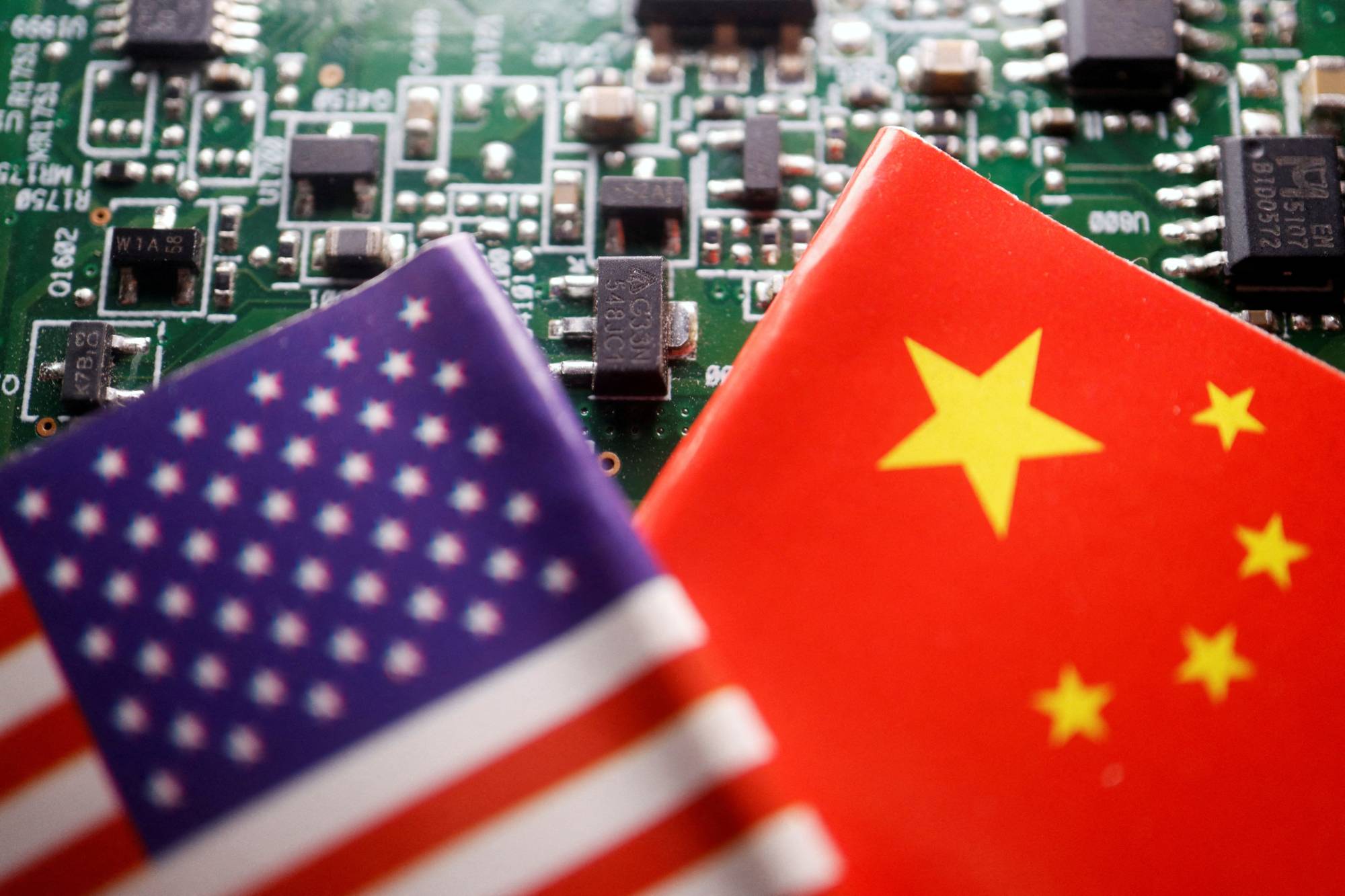In the ever-intensifying global technological race, the United States is rallying its allies to stand firm against China’s ambitions in the semiconductor industry. Recent reports indicate that the Biden administration has urged South Korea to follow suit in implementing restrictions on semiconductor technology exports to China, mirroring measures already undertaken by Washington. This move underscores the growing determination of the U.S. to counter Beijing’s efforts to dominate the crucial chip sector.
American officials have reportedly approached South Korea, advocating for restrictions on the transfer of equipment and technologies vital for the production of high-end logic and memory chips to China. These measures include limiting the export of logic chips more advanced than 14 nanometers and a specific type of memory known as DRAM beyond 18nm. While discussions remain confidential, sources familiar with the matter reveal that talks between the two nations have been ongoing since March, signaling a concerted effort to bolster cooperation.
The proposed restrictions align closely with measures announced by the U.S. Department of Commerce in 2022, demonstrating continuity in Washington’s stance on safeguarding critical semiconductor technologies. As the Biden administration aims to solidify alliances ahead of the G7 summit in mid-June, South Korean officials find themselves at a crossroads, balancing their economic ties with China against the imperative of aligning with U.S. interests.
Key Semiconductor Export Figures from South Korea to China
| Product Category | Market Share in China | Rank Among Exporters |
|---|---|---|
| Memory Chips | Largest | 1st |
| Silicon Wafers | 2nd Largest | 2nd |
| Chip-making Materials/Parts | 2nd Largest | 2nd |
Despite the urgency conveyed by U.S. officials, South Korean authorities are cautious, cognizant of the potential repercussions from Beijing. China remains a pivotal trading partner for Seoul, with major conglomerates such as Samsung Electronics Co and SK Hynix Inc maintaining significant operations within Chinese borders. The fear of retaliatory measures from Beijing looms large, prompting Seoul to tread carefully in its decision-making process.
Moreover, the intricacies of global supply chains add another layer of complexity to the situation. South Korea occupies a prominent position in the semiconductor ecosystem, boasting advanced chip manufacturing capabilities and a robust network of suppliers. While not as conspicuous as industry giants like Applied Materials Inc or ASML Holding NV, local equipment manufacturers such as Hanmi Semiconductor Co and Jusung Engineering Co play a crucial role in supporting the semiconductor industry.
As the geopolitical landscape continues to evolve, South Korea finds itself at the nexus of technological cooperation and economic diplomacy. With the U.S., Japan, and South Korea slated to convene in late June to discuss collaboration in advanced technology and supply chain resilience, the stakes are high for all parties involved. Seoul’s proactive engagement in multinational frameworks for reviewing export controls reflects a nuanced approach aimed at balancing economic interests with strategic imperatives.
According to South Korea’s Trade Minister Cheong Inkyo, the country’s participation in such frameworks may complicate U.S. efforts to curtail China’s influence on technology supply chains. However, the overarching goal remains clear: to safeguard critical technologies while fostering an environment conducive to innovation and competitiveness.
As South Korea deliberates its response to U.S. appeals for semiconductor export restrictions, several challenges and opportunities come to the fore:
- Economic Considerations: The economic repercussions of potentially antagonizing China weigh heavily on South Korea’s decision-making process. Balancing the imperative of safeguarding critical technologies with the need to maintain robust trade relations poses a formidable challenge.
- Technological Leadership: South Korea’s role as a global leader in semiconductor manufacturing underscores its significance in the ongoing technological race. Collaborative efforts with allies like the U.S. and Japan present opportunities to consolidate and expand this leadership position.
- Geopolitical Dynamics: The geopolitical dynamics of the Asia-Pacific region further complicate the situation. South Korea’s proximity to both China and North Korea adds layers of complexity, necessitating a delicate balancing act in its foreign policy approach.
- Long-term Strategic Vision: Amidst the immediate pressures of trade negotiations and geopolitical tensions, South Korea must maintain a long-term strategic vision. Investing in research and development, nurturing talent, and fostering innovation are essential elements in securing its position in the global semiconductor industry.
In conclusion, the U.S. appeal to South Korea for semiconductor export restrictions marks a significant development in the ongoing contest for technological supremacy. As Seoul navigates the complexities of international relations and economic interdependence, the decisions made in the coming months will not only shape the trajectory of the semiconductor industry but also influence the broader geopolitical landscape. Balancing competing interests while staying true to its strategic objectives will be paramount for South Korea as it charts its course in this ever-evolving global arena.
Related News:
Featured Image courtesy of The Japan Times

